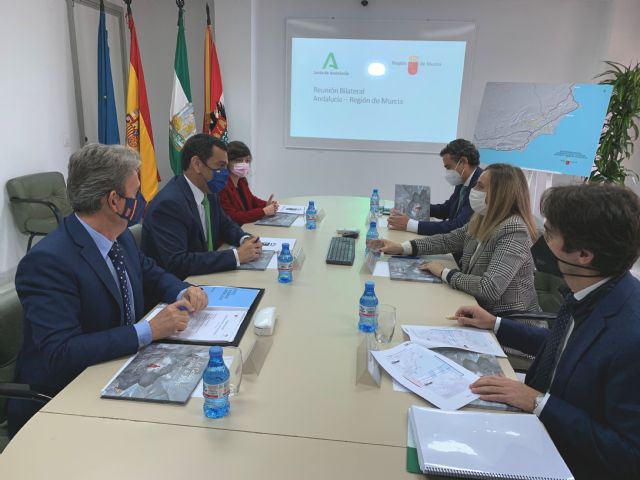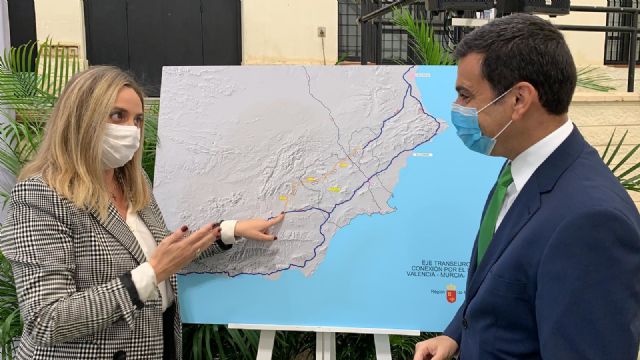| The Development Councilors claim "greater agility" in the works that guarantee the construction of the complete route because "only then will a competitive infrastructure be possible" | They request the Government of Spain to build a highway that connects the interior of the Region with Granada and Valencia to unload the A-7 of traffic and that it be integrated into the Trans-European Transport Network The governments of the Region of Murcia and Andalusia today demanded that the State comply with the commitments acquired and the deadlines of the Mediterranean Corridor, which set its start-up in 2023, and not continue to delay an infrastructure "strategic, competitive and decisive for the future of prosperity of both regions.
" In this sense, they recalled that the previous executive established a real and effective planning that made it possible for the Mediterranean Corridor to be operational in 2023 and, instead, "the Sánchez government slides the implementation of the Corridor until at least 2026, according to the draft General State Budgets ". This was expressed today in Pulpí (Almería) by the Minister of Development and Infrastructure, José Ramón Diez de Revenga, and his Andalusian counterpart Marifrán Carazo, who agreed to highlight that "we are at a key and fundamental moment in the works of the Mediterranean Corridor" . Díez de Revenga considered "a priority to clear up uncertainties and bottlenecks located along its route", such as the connection with Cartagena, the integration in Lorca, the continuity towards Pulpí and the urban stretch of Totana; all of them paralyzed for more than two years. "When in Catalonia and the Valencian Community they are projecting extensions of the roads and improvements of the services, the reality is that in the route of the Region of Murcia and Andalusia there are neither projects, nor dates nor budgets", affirmed the counselor of Promotion. "If it stops in the Valencian Community it will be a totally useless work for the growth and development of the country, because it will be isolating the millions of inhabitants of these two regions, which also contribute a lot of wealth to the Spanish economy," he insisted. In this sense, he stressed that "the Mediterranean Corridor will not be a corridor if it is not complete and it will not be Mediterranean until Cartagena and Almería are fully integrated." For this reason, he urged "to provide an effective solution" to bottlenecks to make it a "truly competitive" infrastructure. New road connection with Andalusia Likewise, the Public Works councilors created a common front to demand from the State the execution of a high-capacity road corridor that connects both communities and that runs parallel to the A-7, which accumulates high levels of traffic along its route.
between both regions. The new high-capacity road will involve an investment of 566 million and will have a route of 132 kilometers, which will connect Jumilla at the height of the A-33 with Cúllar (Granada) on the A-92 N, running through the interior of Granada, and that it would help relieve traffic on the A-7.
Thus, the historical itinerary of connection between the Region with Andalusia is recovered, which will link with the Valencian Community and Europe. Díez de Revenga highlighted that the future road would constitute an essential route to provide an alternative route to the existing one on the A-7 and that, in addition to opening new opportunities for employment and growth, it would be an infrastructure that would significantly reduce travel times and CO2 emissions.
For this reason, he affirmed that both the State and the European Union are urged to create this new road axis, which must be part of the Mediterranean Corridor. Díez de Revenga explained that this corridor will increase the structuring and connectivity with neighboring communities, improve communications and equality of territories, increase the territorial cohesion of a large rural area (Caravaca-Puebla de Don Fadrique-Cúllar-Baza, Huescar) and it will avoid the depopulation of urban centers.



